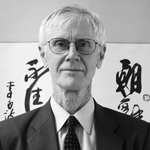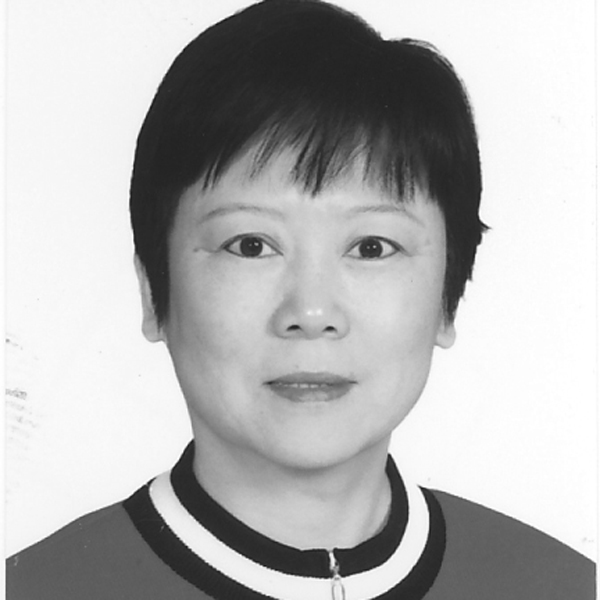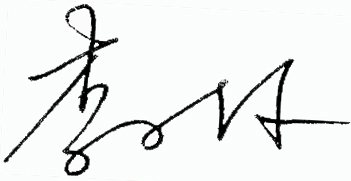Welcome Messages 2011
 This is an extremely interesting time for all of us to be in China, not just because of the tectonic changes that have been sweeping through its culture, society, and economy, but because it is also a critical moment politically speaking. There is much about US-China relations these days that is in a state of flux. China’s “rise” and recent American economic and political challenges have heaved up interesting questions not only about the global balance of power, but the effectiveness of the various developmental and political models that are competing around the world. Not surprisingly, this has led to much uncertainty, even fear, about the intentions of the other side and not a little political posturing.
This is an extremely interesting time for all of us to be in China, not just because of the tectonic changes that have been sweeping through its culture, society, and economy, but because it is also a critical moment politically speaking. There is much about US-China relations these days that is in a state of flux. China’s “rise” and recent American economic and political challenges have heaved up interesting questions not only about the global balance of power, but the effectiveness of the various developmental and political models that are competing around the world. Not surprisingly, this has led to much uncertainty, even fear, about the intentions of the other side and not a little political posturing.
The reality of our present world compels us to acknowledge that, unless our two countries find new ways to interact in more constructive and productive ways, there will be a whole host of critical global problems such as climate change, nuclear proliferation, world trade and global epidemics which will remain unaddressed and unsolved. Thus, despite the differences in our political systems, culture and historical experiences, it has become my conviction that the two countries must redouble their efforts to find new ways to stay constructively engaged.
For me, this means that the two countries must engage not only on policy questions, but in other areas of life as well. Since culture offers an alternative arena where enjoyment, as well as mutual understanding, is often more easily had than from across a negotiating table, we felt it would be worth organizing a cultural exchange that grew out of a private, rather than a government-sponsored, initiative.
So, the Asia Society and the Aspen Institute, both of which have worked for many years in the foreign policy field, banded together a group of friends and colleagues from the worlds of the arts, music, literature, dance, and film to take a collective trip to China. Whether such an effort will actually change the terms of the Sino-US game, we do not know. No one can accurately assess its effect with any meaningful metric. Nonetheless, we feel that culture is often a better solvent than state-to-state negotiations. So, we Americans all look forward to our time together in China with immense anticipation. Being able to look into the worlds of our colleagues from other disciplines will be an enormous pleasure, as will the opportunity to be in China with Chinese colleagues from so many points of the Chinese cultural compass rose.

— Orville Schell, Arthur Ross Director of the Center on U.S.-China Relations at the Asia Society, New York, USA
 On behalf of the Aspen Institute it is my pleasure to welcome you to the inaugural US-China Forum on Arts and Culture. This unique opportunity to exchange is born of ancient principles which remain powerfully relevant today. Consider that the arts are ways to communicate when we must breach the limits of explanation: to express sorrow or joy, we turn to song or dance; to find inspiration we surrender to the enigmatic creativity of poetry and to the myriad expressions to be found in visual arts representations; to reflect on our time and on our very natures, we mine the endless invention to be discovered on movie screens and on the stages of our theaters. Indeed, the arts are a way to express ourselves fully, and, to create a testament to our times, drawing us in to a common understanding.
On behalf of the Aspen Institute it is my pleasure to welcome you to the inaugural US-China Forum on Arts and Culture. This unique opportunity to exchange is born of ancient principles which remain powerfully relevant today. Consider that the arts are ways to communicate when we must breach the limits of explanation: to express sorrow or joy, we turn to song or dance; to find inspiration we surrender to the enigmatic creativity of poetry and to the myriad expressions to be found in visual arts representations; to reflect on our time and on our very natures, we mine the endless invention to be discovered on movie screens and on the stages of our theaters. Indeed, the arts are a way to express ourselves fully, and, to create a testament to our times, drawing us in to a common understanding.
We all as humans share a mixture of awe and familiarity in the presence of great art—Emerson wrote that in “genius we recognize our own rejected thoughts”— they are ours innately, but it takes the artistic to adequately voice them. On first hearing a tune which we then cannot help but remember, we feel that we might have written the melody ourselves it makes such sense to our minds! And so we unite in common awe as we listen to a Bach Prelude for cello, or watch a ballet by Balanchine, or listen to a poem by Wang Wei. It is in this spirit that we meet to share our thoughts and celebrate our arts, and I am so pleased to invite you to join us on this journey.
— Damian Woetzel, Director, Arts Programs, The Aspen Institute, New York, USA
 Welcome to the US-China Forum on the Arts and Culture!
Welcome to the US-China Forum on the Arts and Culture!
The world enjoys rich and colorful culture heritages. Each culture carries its distinctive national characteristic and soul. Cultures may be compared as old or new, but not superior or inferior. Each culture should be well respected and protected.
Both China and the United States boast their own distinguishing culture, of which their people are very proud. Due to historical and social factors, the two cultures differ a lot, but that does not mean they have nothing in common. As long as the two sides seek common ground while preserving differences, find areas of cooperation and exchange, and reach better understandings, our bilateral relations will continue to advance in the right direction.
This Forum is co-hosted by three civil organizations, the Chinese People’s Association for Friendship with Foreign Countries, Asia Society and Aspen Institute. The Forum is an important program aimed to promote China-US mutual understanding and cultural interaction. It is also an active response to the call of both Chinese and American state leaders to promote cultural and people-to-people exchanges. It is our wish that through the participation of cultural elites from both countries, this Forum will serve as an important channel for better understanding and friendship between the Chinese and American people, and provide solid foundation as well as impetus for future growth of our bilateral relationship.
In conclusion, I want to thank those friends who have contributed to this Forum. I wish the Forum a complete success!
— Madam Li Xiaolin, President, Chinese People’s Association for Friendship with Foreign Countries, Beijing, China
This post is also available in: Chinese (Simplified)




